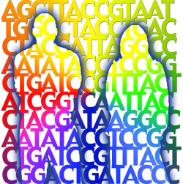Stem cell research carries a broad variety of impacts on society and law. Being a branch of the relatively new field of regenerative medicine, stem cell research has evolved over the years as human knowledge of cellular biology has expanded. The history of translational stem cell research is yet even smaller. This small history leads to a great uncertainty over stem cell research work.
Some of the societal issues of stem cell research are:
-
Implications of stem cell knowledge - As society continues to develop its knowledge of stem cell biology, will all knowledge be ultimately translated to only cures? Can too much knowledge of our own bodies lead to harm due to conditions like paranoia or anxiety? Will medical professionals become biased against other forms of treatments if stem cells do indeed prove to treat or cure a variety of diseases?
-
Implications of the power to cure or treat disease - If many stem cell treatments are developed, who will control the distribution of treatments? Will medical professionals be free of bias due to race, ethnicity, gender, or age, when providing stem cell treatments? Is the general public responsible enough to view stem cell therapies in a mature way? What will happen if the general public begins to perceive stem cells as "miracle cures"? Can we control the extent to which people believe in the effectiveness of stem cell therapies?
-
In simple words, the sociological impact of stem cell research is outstanding when considered in the context of humans and human history. Disease and illness have devastated human populations since human beings first originated. If stem cell treatments are discovered, do they indeed become the last avenue of innovation in biomedical research and science? Is stem cell research truly as far as we can go for cures?
 Do people hold more value . . . (Image Citation 45) |  Or does the science behind the people hold more value? (Image Citation 46) |
The legal impact of stem cell research is also very significant.
- Defining Stem Cells Technically in Law - Because stem cells are yet still under study, the definition of what a stem cell exactly is changes throughout time. Ultimately, this conflicting definition may lead to opposition due to patient rights of knowledge during clinical trials or treatments, as well as responsibilities of scientists in informing the public about stem cell science.
- The Power Over Stem Cells & Patient Rights - Stem cells are used for biomedical research by scientists. Quite obviously, the research is not designed to benefit a specific individual, but rather a large group of people, or an entire population of people. From a lawmaker's prespective, who holds control over a donor's stem cells when they are used for research? Should the donor be compensated according to the number of people that will be treated with the cure? Should donors receive "royalties"?
- Accessibility of Cures - People have diseases, but often in various degrees or stages. If stem cell therapies are limited in number or quantity, do those with more severe or later stages of the disease receive treatment first? Should persons with earlier stages of a disease be allowed to suffer?
- Stem cells as Cures or Platforms - Who truly benefits from stem cell research? Is it the patient? Or is it a political party or government official/candidate which/who endorses/opposes stem cell research?
- In simple words, where are the boundaries of science and law? Do these boundaries overlap? Do scientists have a certain extent of right to create cures and provide them to people as needed, while ignoring legal issues and "red tape"?
Home | Introduction | Applications | Innovators | Issues and Ethics | Resources | Get Involved | Citations